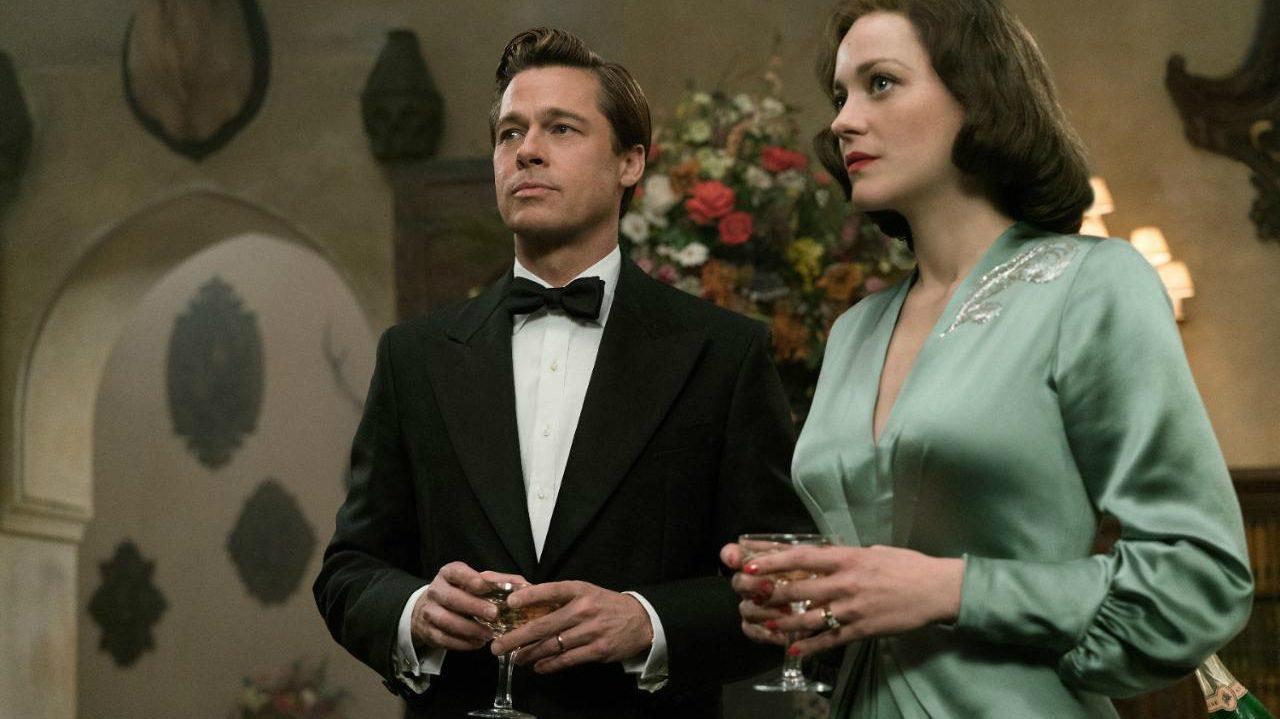Allied review: Marion Cotillard and Brad Pitt's wartime romance proves insincere
Robert Zemeckis’ latest struggles between balancing glamorous exoticism and tense suspicion in this weakly plotted spy thriller

Your support helps us to tell the story
From reproductive rights to climate change to Big Tech, The Independent is on the ground when the story is developing. Whether it's investigating the financials of Elon Musk's pro-Trump PAC or producing our latest documentary, 'The A Word', which shines a light on the American women fighting for reproductive rights, we know how important it is to parse out the facts from the messaging.
At such a critical moment in US history, we need reporters on the ground. Your donation allows us to keep sending journalists to speak to both sides of the story.
The Independent is trusted by Americans across the entire political spectrum. And unlike many other quality news outlets, we choose not to lock Americans out of our reporting and analysis with paywalls. We believe quality journalism should be available to everyone, paid for by those who can afford it.
Your support makes all the difference.Allied (12A)
Dir: Robert Zemeckis, 124 mins, starring: Brad Pitt, Marion Cotillard, Lizzy Caplan, Jared Harris, Simon McBurney
What kind of film does Allied want to be, exactly? The glamorous, titillating thriller in which spies-in-love trade secrets and promises? Or something entirely more sober?
The opening to Robert Zemeckis’ latest would certainly suggest the former in its fantastical, exotic vision of Casablanca, 1942; Bogie and Bergman may be hiding in the shadows, but spy Max Vatan (Brad Pitt) arrives in the conquered city to meet his sham wife, Marianne Beausejour (Marion Cotillard).
She's deep undercover; her effusive charm makes her a favourite among the local Nazi authorities, as she welcomes her supposedly long-absent husband into the crowd. In reality, the pair have never met: they’re merely the front line in a months-long assassination plot set to take place at the ambassadorial reception held in a few days.
And, as always happens in the movies, their pretend affair soon turns into a real one, though in Allied the turning tides of emotion seem startlingly sudden. With the Casablanca scenes more of a prologue to the main action, we get minimal time to see these two actually fall in love; a couple of furtive glances later, and suddenly they’re making love in a car trapped in the middle of a sandstorm.
But if this is intended as a breezy, period affair, how do we explain what happens next? A shift in tone from thrilling, glamorous exoticism to London’s home front; the fires of the Blitz engulfing a maternity ward, and a grim moment in which Max launches a grenade into a German tank, before taking a gun to each of its mortally wounded occupants.
Allied undercuts what’s come before in its attempts to veer its narrative into the world of tense suspicion, to see the veracity of the lovers’ grand affair come under question and put loyalties under threat. Yet, there’s an insincerity to the plotting here, which concerns itself primarily with establishing a series of high-stake set pieces; including introducing the idea it may all be a mere test of loyalty, which seems largely improbable considering the severity of the accusations.
Indeed, this is the kind of film that puts intended tone above all else: above logic, above dramatic commitment. It’s as if Zemeckis and screenwriter Steven Knight (Locke, Eastern Promises) mapped out a certain path of emotions the audience is intended to feel – thrill, arousal, stress, sadness – but hadn’t thought through how authentically to link these moments together, relying instead on mere calling cards as opposed to real narrative work.
Pitt and Cotillard both do a fine job with what they’re given; the latter, in particular, delivering the fluidity and adaptability of Marianne’s character with a real spark. But it’s not enough; with even the cinematography seeming to bow to such non-committal tone. There’s an odd, stark sheen to it all; betraying neither nostalgic romanticism nor muted weight, making its lead actors look like mannequins posed in the actions of wartime romance.
Perhaps it’s unsurprising at this point, but the whole thing ends rather simplistically; wasting time on establishing a moral conundrum of duty versus love that it never really has the guts to explore, at the sacrifice of continuing the glamorous thill ride it so eagerly promised in its opening scenes.
“I keep the emotions real, that’s why it works,” Marianne coyly utters. It’s a piece of advice this film would have been better off taking heed of.
Allied hits UK cinemas 25 November.
Join our commenting forum
Join thought-provoking conversations, follow other Independent readers and see their replies
Comments